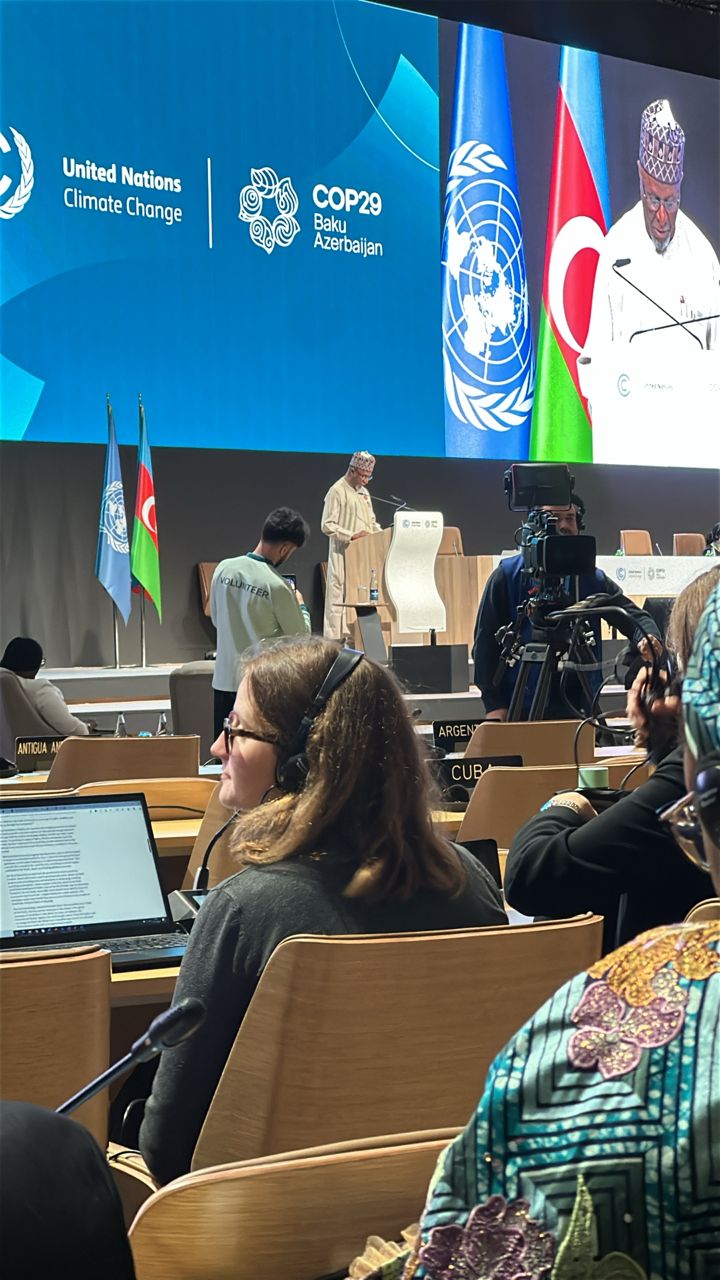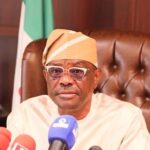By Chuks Oyema-Aziken (Baku, Azerbaijan)
Nigeria at the ongoing COP29 in Baku Azerbaijan is advocating for the provision of means of implementation to achieve the Global Goal on Adaptation.
President Bola Tinubu made the call on Tuesday at the 29th session of COP to the UNFCCC.
The President in a speech delivered by the Minister of Environment, Balarabe Abbas Lawal said Nigeria is one of the countries of the world most vulnerable to adverse impacts of climate change.
“There are increasing evidences that the country is experiencing widespread challenges attributed to climate change and its impacts. These directly constitute severe limitations to the achievement and progress of our sustainable development and associated aspirations.
Mr President,” he said.
“To address these concerns, the country is intensifying the implementation of policies and plans to cut greenhouse gas emissions, increase resilience, and include climate change solutions into national planning processes. Nigeria is making investments in renewable energy, energy efficiency, afforestation, transportation, and other climate-friendly initiatives.
“Almost ten years after the Paris Agreements, the world stand at a defining juncture on the transition away from fossil fuels. Nigeria has joined the world in the deployment and adoption of several interrelated technologies especially that of renewable energies sources, alternative energy sources such as compress natural gas (CNG) mobility systems and electrification technologies such as electric vehicles (EVs).
“The country is committed to implementing its Energy Transition Plan and Long-Term Low Emission Development Strategy, with the goal of increasing renewable energy sources and energy efficiency. We are open to collaborating and partnering to expand our proportion of renewable energy mix.
“Further, Nigeria is working towards achieving net-zero emissions by 2060 and enhancing its National Determined Contribution (NDC). Accordingly, Nigeria has developed its NDC implementation framework and looks forward to partnering on its delivery.
“In Nigeria, in our stride towards reducing susceptibility to climate change, we are incorporating adaptation measures into policies, programs, and actions. An Adaptation compact with project pipelines exists to help us build the much needed resilience. We are open to partnerships in this regard.
“Also, the National Adaptation Plan (NAP) is being finalized to make Nigeria more resilient to its development priorities and systems. To enable countries resilience strong enough to withstand climate change impacts, Nigeria hereby advocates for the provision of means of implementation to achieve the Global Goal on Adaptation (GGA).
“In our effort to reduce our carbon footprint and achieving our national objectives, we have developed a framework and strategy plan for participation in the Article 6 Carbon Market. In 2023, an Intergovernmental Committee on Carbon Market Activation Plan was formed to oversee the carbon market’s efficient implementation. Further, Nigeria has established an Article 6 Carbon Market Framework that incorporates national interests in carbon market activation plan . Currently, a national carbon registry is being developed.
“Nigeria aligns with the rest of Africa in demanding greater, easier access to international climate finance, including grants and concessional loans, to support mitigation and adaptation efforts. We stress the need to significantly scale up adaptation finance to enable developing countries to accelerate adaptation and build resilience.
“We also urge for accelerated efforts to operationalize the loss and damage fund to mitigate the damaging impacts of climate change. Nigeria further aligns with the Harare Declaration by the African Ministers of Health to take action on the impact of climate change on health.
Mr President
.



